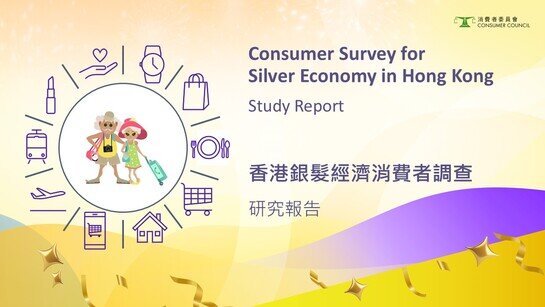Overview
In recent years, the widespread adoption of artificial intelligence (AI) around the world has brought benefits to society on different aspects, making it well recognised as an irreversible trend to enable development and transformation. Riding on the opportunities brought about by the rapid development of e-commerce and the AI trend across the globe, the Hong Kong SAR Government (the Government) is also proactively promoting the development of Hong Kong into a smart city fuelled by digital transformation.
The rapid global development of AI can be seen as a double-edged sword. On the one hand, it brings economic benefits, improves the quality of life, and handles high-risk tasks. On the other, it could pose risks to the public if used inappropriately. With a view to encouraging stakeholders in Hong Kong to embrace the sea change towards I&T with a positive and proactive attitude, thus achieve a sustaining and win-win situation, the Consumer Council (the Council) conducted its first-ever study on the use of AI in e-commerce in Hong Kong, titled “Fostering Consumer Trust – Ethical AI in Hong Kong” (the Study). Adopting a forward-thinking approach, the Study aims to identify the various challenges currently faced by Hong Kong’s consumers and traders when they use or develop AI, as well as their opinions; to review the objectives and policies of AI governance adopted by different countries and regions around the world; and to listen to the views of stakeholders. Through the findings of the Study, the Council advocates a series of recommendations to enable the healthy development of AI in e-commerce, on the basis of complying with ethical standards and balancing the interests of all parties, including safeguarding consumer rights.
Key Findings
The scope of the Study focuses on business-to-consumer (B2C) e-commerce and adopts a mixed-method approach comprising a quantitative online consumer survey; review of e-commerce platforms (including AI applications and public information on websites) amongst local consumers; in-depth interviews with 19 major e-commerce traders, technology providers and industry experts in Hong Kong; desk research on relevant policy guidelines and initiatives on the use of AI in 10 selected jurisdictions; as well as review of consumer cases. The Study aims to provide insightful recommendations to the Government, traders and consumers to promote the responsible and ethical use of AI in the e-commerce industry. The Council identified key concerns as follows:
1. AI brings both pros and cons to consumers; consumer confidence could be enhanced through effective risk mitigation;
2. Consumers are keen on online shopping but unfamiliar with AI; they anticipate the right to know and the right to choose;
3. Accuracy and stability are key for enhancing the satisfaction of AI tools;
4. Privacy policies of online stores show much room for improvement;
5. Industry practitioners anticipate increased support to tackle challenges in talents, funding and data; and
6. Industry practitioners and stakeholders hope that the Government could reference the experience of other jurisdictions to expedite a local AI governance framework.
Recommendations
To advocate the collective development of “responsible and ethical AI” by all stakeholders, in an effort to safeguard consumer rights and foster long-term societal and economic benefits, the Council puts forward the following six recommendations:
Actions for Consumers:
1. Follow tips to be a smart consumer when shopping online
Actions for Traders:
2. Adopt the checklist of best practices to formulate company AI policy and governance
3. Industry associations to establish a “Consumer Charter” to enhance consumer confidence
Actions for the Government:
4. Nurture AI understanding of the public and traders
5. Establish a holistic policy for AI development
6. Build a fair and competitive e-commerce market
Conclusion
Amidst the rapid transformation of the digital economy, AI has become a driving force for societal and economic development. Different countries and regions have formulated AI development roadmaps covering various facets, such as governance, digital policies, industry support, consumer safeguard and education, with the aim of fully unleashing the potential of AI and effectively mitigating its risks. Strategic directions around the globe generally always include “responsible and ethical AI” policies to build stakeholders’ confidence and positive attitude in using relevant technology. The Council hopes that while the Government is actively promoting digital transformation and AI development, it can make reference to the experiences and approaches of other jurisdictions and establish an AI development plan and regulating policies to encourage the development of “responsible and ethical AI” in society and ensure consumer interests are well protected.
The Council will actively participate and work with various stakeholders. The Council believes that a three-pronged approach must be adopted, including continuously improving policy framework, improving the performance of digital governance amongst traders, and strengthening consumers’ ability to protect themselves, in order to leverage and transform the power of AI into an engine to fuel the development of Hong Kong.













